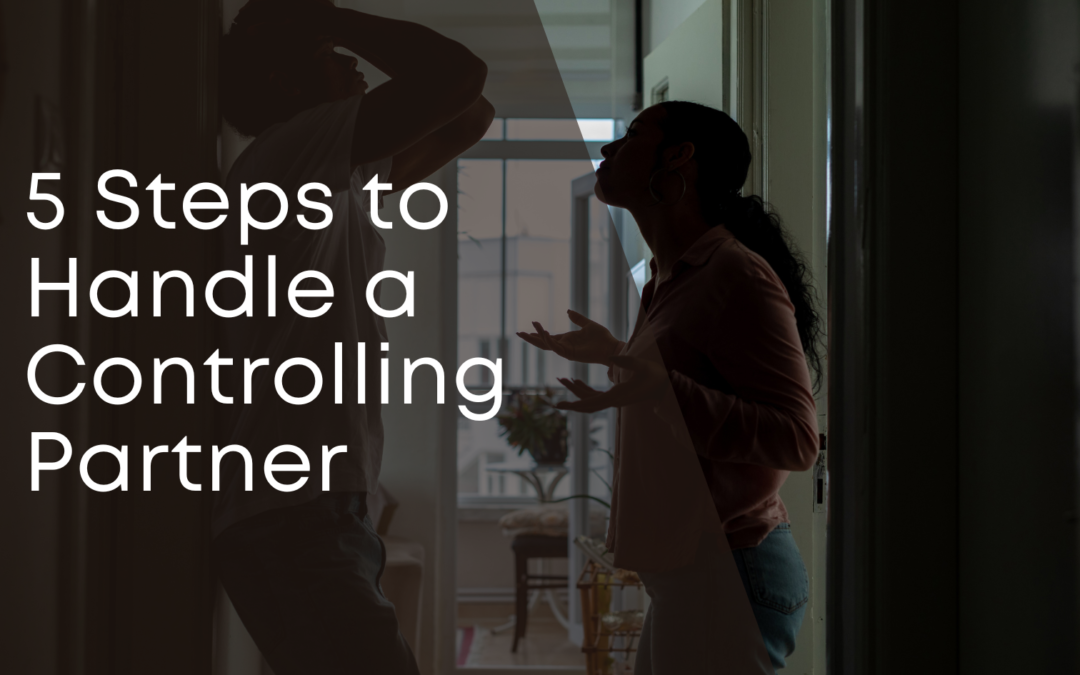When you entered your marriage, you likely envisioned a partnership based on mutual respect, trust, and love. But now, you find yourself feeling trapped, manipulated, and unsure how to move forward. You’ve noticed that your partner tries to control aspects of your life—from how you spend your time, to whom you talk to, and even how you think. You know something has to change, but the weight of a controlling relationship, combined with the complications of divorce, feels overwhelming. What can you do when your partner is controlling, and how do you regain control of your life?
Understanding the Problem: Control in Relationships
A controlling partner doesn’t just affect your day-to-day life—they impact your emotional and mental well-being. This issue runs deeper than just a disagreement or a fight; it’s a persistent problem that affects the core of who you are. If you’re going through or considering divorce, these behaviors can escalate and make the process even more difficult.
The External Problem
From the outside, controlling behavior can seem subtle at first—micromanaging finances, making decisions without consulting you, or setting unreasonable expectations. But over time, these actions become more frequent and severe. You may feel like you’re walking on eggshells, constantly adjusting your behavior to avoid conflict or backlash.
The Internal Problem
Internally, the effects of being controlled by your partner can take a serious toll. You might feel inadequate, powerless, or even question your worth. Many divorcees describe a sense of losing themselves in the relationship. These feelings often lead to anxiety, depression, and a loss of self-confidence, making it even harder to stand up to the controlling behavior or leave the relationship.
The Philosophical Problem
On a deeper level, it’s simply wrong. No one deserves to feel trapped or manipulated by their partner. Relationships are meant to be mutual, supportive, and equal. When one partner exerts control over the other, it violates these fundamental principles. It’s unjust, unfair, and not what a partnership should be. However, it doesn’t have to be this way. You have options and, more importantly, the right to reclaim your autonomy.
A New Way: Divorce Mediation to Regain Control
I’m Steven Unruh, a divorce mediator with over 30 years of experience helping individuals navigate difficult relationships and come out stronger on the other side. I understand how paralyzing a controlling partner can be, but I want you to know there is a way forward. Divorce mediation offers a path that not only addresses the legal aspects of separation but also creates an environment for you to regain your independence and find peace.
Divorce mediation is a less adversarial process than traditional divorce. It allows both parties to communicate their needs and reach mutually agreeable decisions without the hostility of a courtroom battle. This approach is particularly beneficial in cases where controlling behaviors are present, as it creates space for balanced, respectful conversations.
Step 1: Acknowledge the Problem
The first step toward freedom is acknowledging that controlling behavior is not acceptable. Many people in controlling relationships are gaslighted into believing that their partner’s actions are normal or justified. Understanding that this behavior is not okay is critical to moving forward. Take a moment to reflect on how the control has impacted your life, and recognize that you deserve better.
Step 2: Set Boundaries
Once you acknowledge the problem, it’s time to set boundaries. These are not just physical boundaries but emotional and psychological ones as well. In mediation, we help you articulate your needs and establish firm lines that protect your well-being. Boundaries might include financial independence, shared decision-making about children, or even personal space.
Step 3: Get Support
Leaving a controlling partner can be emotionally draining. You don’t have to do it alone. Surround yourself with a support system—whether it’s friends, family, or a therapist. Divorce mediation also provides an added layer of support by ensuring you have a voice in the process. Unlike litigation, where control can easily shift to lawyers and judges, mediation puts you in the driver’s seat.
Step 4: Plan for Your Future
One of the benefits of mediation is the ability to create a forward-looking plan. This isn’t just about dividing assets or negotiating custody; it’s about building a life that reflects your needs and desires. With my guidance, we’ll work to create a divorce agreement that empowers you to start fresh and regain your sense of self.
Step 5: Prioritize Healing
Finally, remember that this is about more than just escaping a controlling relationship—it’s about healing. Divorce mediation provides an opportunity for personal growth and recovery. By focusing on collaboration rather than conflict, you’ll find that the process itself can be empowering, helping you move on with dignity and hope.
Take the First Step Today
Some people worry that divorce mediation won’t work if their partner is too controlling. But that’s not the case. Mediation is designed to ensure both parties have an equal voice. A trained mediator like myself can manage power imbalances by guiding discussions in a way that promotes fairness. If you’re concerned that your partner will try to dominate the process, know that I have the experience and strategies to prevent that from happening.
Your future doesn’t have to be one filled with fear, manipulation, or control. By choosing divorce mediation, you’re choosing a path that puts you back in charge of your life. I’ve seen firsthand how individuals—just like you—have taken control of their situation and rebuilt their lives with confidence. Don’t wait for things to get worse; take action now.
If you’re ready to explore your options and move forward with your life, I’m here to help. As a divorce mediator with over 30 years of experience, I’ve helped countless individuals break free from controlling relationships and create a better future for themselves. Schedule a consultation today, and let’s work together to get you the freedom you deserve.


Recent Comments